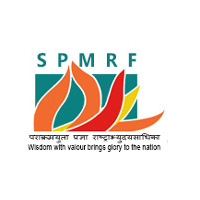India is Transforming: the discerning see it, the purblind ignore it
- By : Anirban Ganguly
- Category : Articles

Prime Minister Narendra Modi’s visit to Myanmar in September was a path-breaking one with both countries reaffirming their commitment to work towards greater cooperation in the region, on the global stage and for effectively tackling the scourge of terrorism. Prime Minister Modi’s visit thus was one of the most successful ones by an Indian Prime Minister in decades, it also demonstrated that both India and Myanmar were willing to cooperate over and stand by their own national security priorities without being swayed by false narratives of human rights.
The document adopted on India-EU relations in the just concluded India-EU summit in New Delhi (6th October) was also a sign of the impact of India’s leadership at the global level in terms of altering the perception of India and enhancing engagement with her. The EU, recognizing India’s commitment to the fight against terrorism and expansionism not only expressed solidarity but also resolved to work at multiple levels to jointly tackle these challenges. In short, the tide is turning in India’s favour on the international arena.
Similarly, the manner in which the Doklam issue was addressed, the maturity and sagacity displayed by the Indian establishment under the leadership of Prime Minister Narendra Modi, has been extremely commendable. It has set an example of how a responsible and mature power like India ought to handle such challenges. There has been no display of triumphalism and despite what the Congress party and Prime Minister Modi’s detractors say, the handling of the Doklam episode shall remain a shining example for future leaders and policy makers. The point that needs to be recognized in this case is that it does not matter how limited your power and capacities are, what matters is one’s willingness to exercise that power and acumen.
On the global arena, India has been successful in not only working towards achieving the objectives of her national interest and national security but also in exposing elements that work against the interest of humanity as a whole. External Affairs Minister Smt. Sushma Swaraj’s speech at the UNGA this year was a resounding articulation of our world vision and exposed those who have encouraged and patronized terrorists across the world and allowed their territory to be used for breeding terrorism.
At home, the pace of governance remains undiminished and the commitment towards empowering the marginalized, towards empowering the deprived is not receiving mere lip service but is seeing action oriented implementation. Connectivity, power availability, electrification, sanitation and the effort to alter the scale of our thinking vis-à-vis development and growth is seeing greater inputs, greater delivery and results. The vision and concept of good governance is visible on the ground, not just reforming but also transforming India.
Prime Minister Narendra Modi’s Myanmar trip, his exhortation to empower women through the abolition of the Triple Talaq, India’s outreach in southeast Asia, a focus on the life and contributions of Pandit Deendayal Upadhyaya, the state of the economy, the launching of the Saubhagya Yojana are some of the focus areas of this current issue. India is transforming, the discerning see it and the purblind ignore it.











